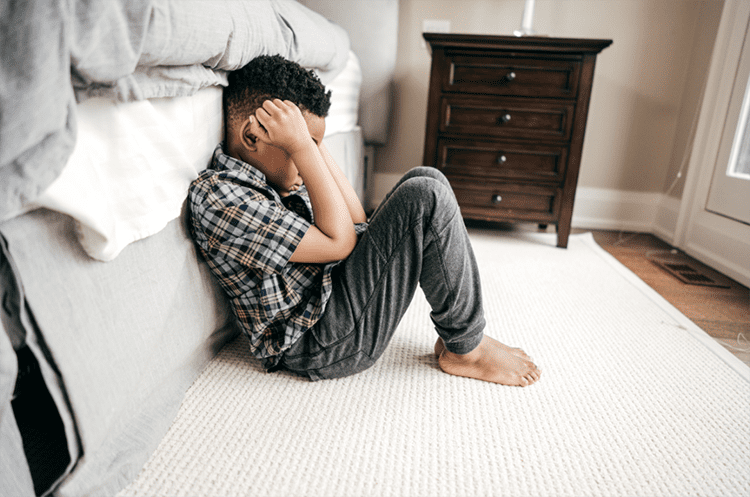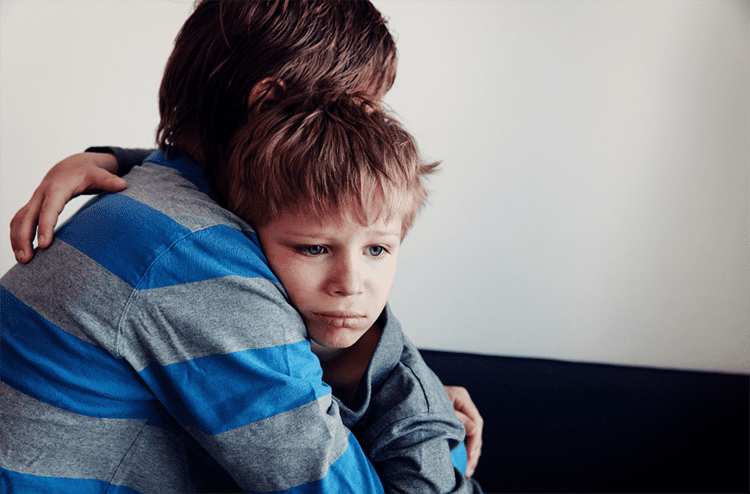Bedwetting is the most common sleep-related issue among children. As a mom of 4 children, 3 of them boys, this was a major problem in our family. I went to doctor appointments asking why my 10-year-old was still wetting the bed. I was told all sorts of things about my bedwetting boys; they were lazy, hard sleepers, or would grow out of it.

As this problem causes emotional issues for parents and children, I knew that there was more to it, so I started searching for answers. Here’s what I found. Whether you are a parent who has children wetting the bed, or you take care of pediatric patients who do, this is what you need to know.
What Is Nocturnal Enuresis?
Nocturnal enuresis, also known as bedwetting, is the involuntary discharge of urine during sleep. This disorder is very common among children 5 years old and younger, but also occurs in children up to 12 years old, or older. It can also occur in adults. Nocturnal enuresis can be caused by several factors. Treatment for this condition may include myofunctional therapy, early interceptive orthodontics, medication, or surgery. It is estimated that 9% of all children experience nocturnal enuresis, or bedwetting. This is about 2.4 million children in the United States.
What Causes Bedwetting?
Bedwetting is a common problem that can be caused by many things. Most people with bedwetting problems are not aware of the cause. It may be caused by a child’s immature bladder, which is not able to hold all of the urine that is released. This results in the child having an accident. Bedwetting can also be caused by urinary tract infections, constipation, mouth breathing, or sleep apnea. The most common causes are due to a physical problem in the urinary tract, an emotional problem, or a medical condition. A very common cause (and a surprising one to many) is mouth breathing, which could be undiagnosed sleep disturbed breathing or obstructive sleep apnea (OSA) syndrome.

What to Do if Your Child Wets the Bed?
Initially, have the child checked by a doctor for any physical problems with the urinary tract. Mouth breathing, restless sleep, snoring, and sleep apnea also need to be considered and treated. If you are a parent, observe your child’s sleep to see if you notice any of this occurring.
If your child is wetting the bed, it is natural for you and the child to feel frustrated and embarrassed. However, there are many ways to help your child stop wetting the bed. First, try changing your child’s diet. If that doesn’t work, ask your doctor about medicines that may help. You may also want to purchase an alarm clock that alerts you when your child needs to go to the bathroom.
Many parents have found that a bedwetting alarm is the most successful way to stop bedwetting. The alarm is a sensor that goes under the child’s mattress and detects when they wet the bed. When the sensor detects that the child has wet the bed, it triggers an alarm. The alarm can be anything from a loud noise to a flashing light, whichever your child finds most disturbing. This is a great way to stop bedwetting because it trains the child to wake up when they feel the sensation of wetting the bed so they can go to the bathroom.
Children who wet the bed need to be encouraged to use the bathroom before bed. They should be allowed to drink as much water as they want during the day and should be told not to drink any fluids two hours before bed. They should also be encouraged to drink fluids after they wake up in the morning.

How to Talk to Your Adolescent About Bedwetting
Parents should not be afraid to ask their adolescents about their thoughts and feelings. There may be stressors in their lives contributing to the situation that you are not aware of. Parents should also give their kids space to express themselves, and be understanding of their needs. It is important to be open and honest with your children, as well as provide them with a safe environment.
Finally, remember that bedwetting is a common condition, and there are many ways to help your child stop. You can help them understand their situation and how to stop bedwetting. Most importantly, remember not to shame them and always keep hope there is a solution for your child.
Leave a comment with your tips or tried and true methods for helping your child through bedwetting. Or, join the conversation in our Facebook group. Click here to join.
Dr. Kimberly A. Meyer DDS, is a dentist boarded in Pain and Sleep who practices in Northwood, New Hampshire and Boston, Massachusetts. She graduated from Tufts University of Dental Medicine in 1998. Her passion to learn continued into orthodontics and growing airways. Her children’s struggles with migraines, poor sleep, and bedwetting drove her to ask why and delve into Pain and Sleep Education. In 2015 she opened her TMJ/Sleep Therapy Centre of New Hampshire, in New Hampshire.
Is work causing you to feel stressed and burnt out? We have a FREE training where we teach 3 steps that actually work to get you out of overwhelm and exhaustion and feeling more confident and balanced. Check it out here: https://womeninwhitecoats.com/3stepstraining/



